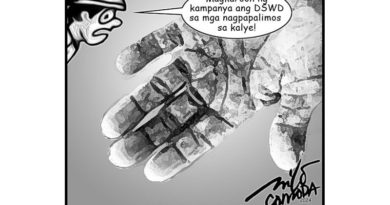OP ED OPINION | Ensure legal boundaries for police access to phones
.
.
They have all expressed views consonant with current legal provisions on the matter.
There are already legal provisions that protect a person’s privacy and also allow law enforcers to conduct bona fide investigations.
|
|
…
However, loopholes can exist and there can also be lacuna in the laws. Also, there can be over-zealous officers who have scant regard for exclusionary provisions.
For example, data extracted without proper warrant or oversight can be misinterpreted or misused to frame innocent individuals.

|
|
…
Accessing a journalist’s phone could compromise confidential sources and endanger national security.
So, we need to remove ambiguities and strengthen legal frameworks, promote public awareness and address specific concerns as a means to further create a system that protects both the public and individual liberties.
This involves collaborative efforts involving the government, law enforcement, legal experts and NGOs.
It may be necessary to review some laws like the Communications and Multimedia Act to provide clear and specific guidelines for police access to private mobile phone data. This includes defining the types of offences that warrant such access, the specific procedures to be followed and the level of judicial oversight required.
|
|
…
We could also implement a mandatory warrant requirement for accessing phone data.
There is a need for measures to oversee police access to private data for an extra layer of accountability and transparency. These measures can further ensure a fine balance between law enforcement and the right to privacy.
Tan Sri Lee Lam Thye
Chairman
Alliance for a Safe Community
|
|





 THE EDITOR
THE EDITOR







